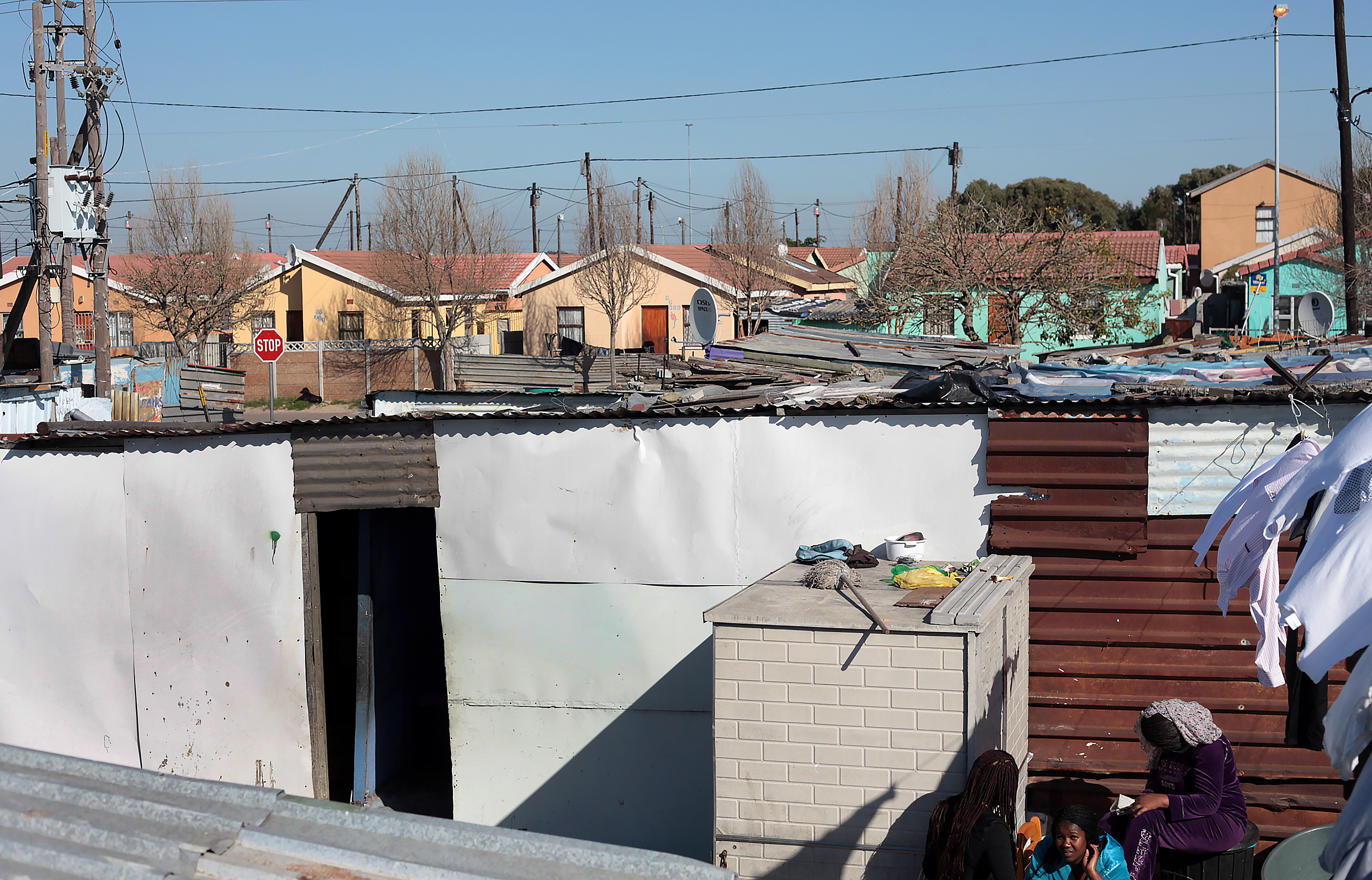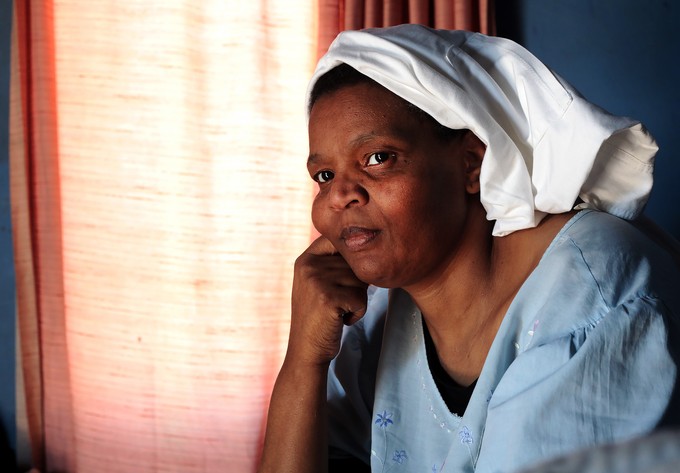No security of tenure after 25 years
Khayelitsha families fear removal from land
Four families are living in fear of removal from the land in Khayelitsha’s Site C on which they have been living for 25 years.
They live in Nolubabalo Street in Site C in the middle of formal housing. The land is owned by the City of Cape Town. The families want the land to be divided into plots with erf numbers and to apply for housing. But the City says the area is too small for subdivision into plots.
Bed-ridden Dunyiswa Mpondo has been unable to do anything for herself since 2004. She lives in a three-bedroomed shack with 11 other family members. With only two double beds, at night they put mattresses on the floor so that everyone can have a place to sleep. In winter the shack is flooded.
She gets a disability grant and her mother and younger child get social grants.
No one in the house has a job.
Mpondo said the families had asked to be given erf numbers and for the land to be divided into plots but nothing had come of it.
“I need a house now more than ever; I cannot move around in the shack with a wheelchair. All I do is sit in this bed the whole day, everyday.”
“We are not a lot of people, just four families, asking that we get the land we have been living on for so many years,” said Mpondo.

Councillor Benedicta Van Minnen, the City’s Mayoral Committee Member for Human Settlements said the City was aware of the issue but there were no plans for the land to be given to the families because it was too small to accommodate them.
“The City is aware of such cases in Site C, but it is not easy to resolve without having other relocation areas to move the residents to. There are no immediate plans to give the land to the families as it is densely occupied.”
She said the land made up one erf which had been occupied by the families, and the shape of the land and number of families did not allow for subdivisions.
Mpondo’s neighbour Nomakula Matiso, who lives with her husband and three children, said she worried that they might be removed from the land.
“This is where we raised our children, this is their home. The thought that we could be removed worries me. We will die and leave our children here with no homes – that scares me. Even after 25 years, the land does not belong to us; we have no title deeds, no erf numbers and no one wants to help us,”
“Our neighbours are on plots with houses.”
Ward councillor Ntomboxolo Kopman said she knew about the families and had tried to get help for them, but the problem was that there was no land.
“It is now treated as an informal settlement. They were told that they are too many people for that space. They were promised, like many other people in informal settlements, that when there is land available, they will be moved,” said Kopman.
Support independent journalism
Donate using Payfast

Don't miss out on the latest news
We respect your privacy, and promise we won't spam you.
© 2016 GroundUp. 
This article is licensed under a Creative Commons Attribution-NoDerivatives 4.0 International License.
You may republish this article, so long as you credit the authors and GroundUp, and do not change the text. Please include a link back to the original article.

